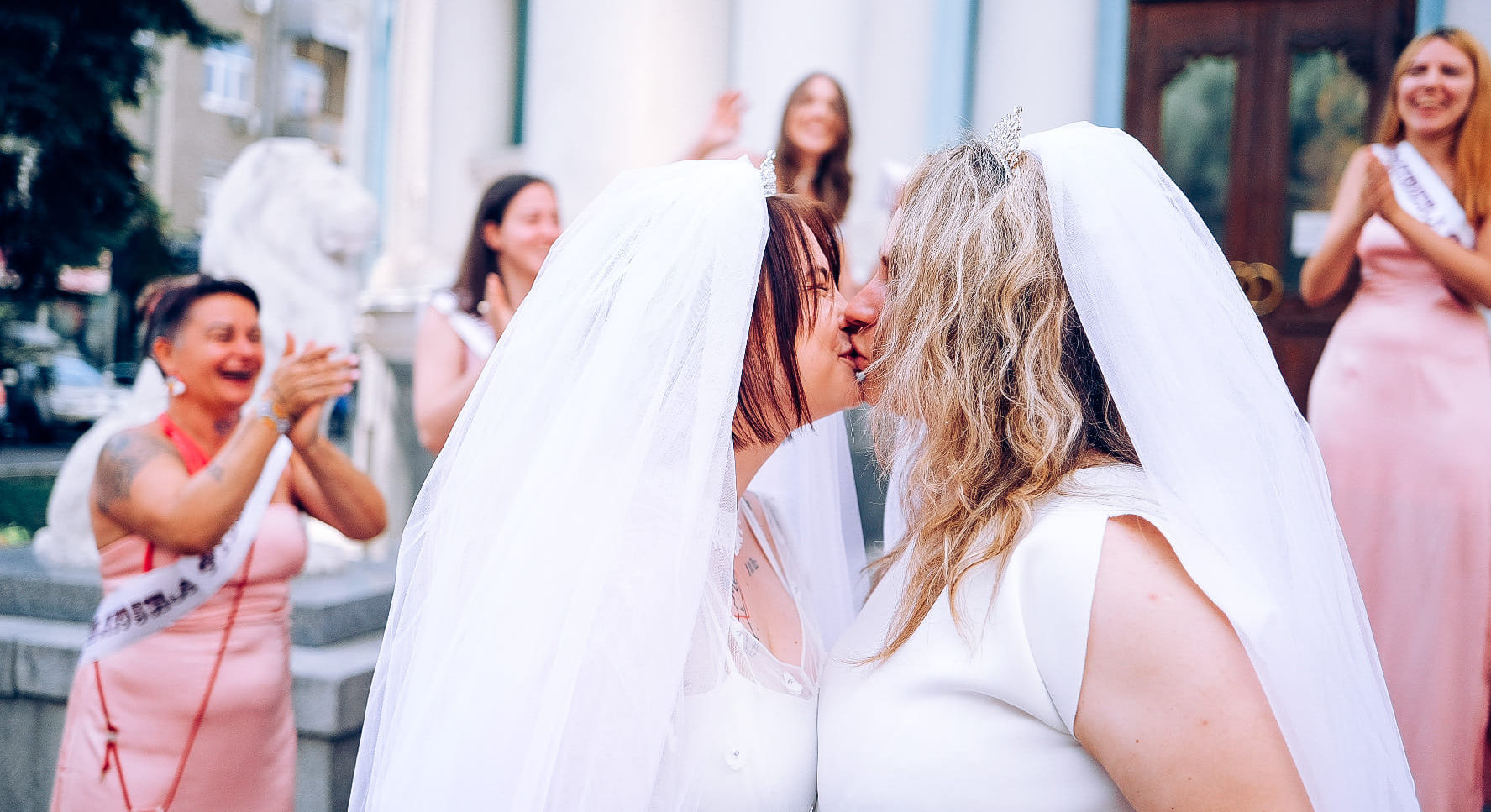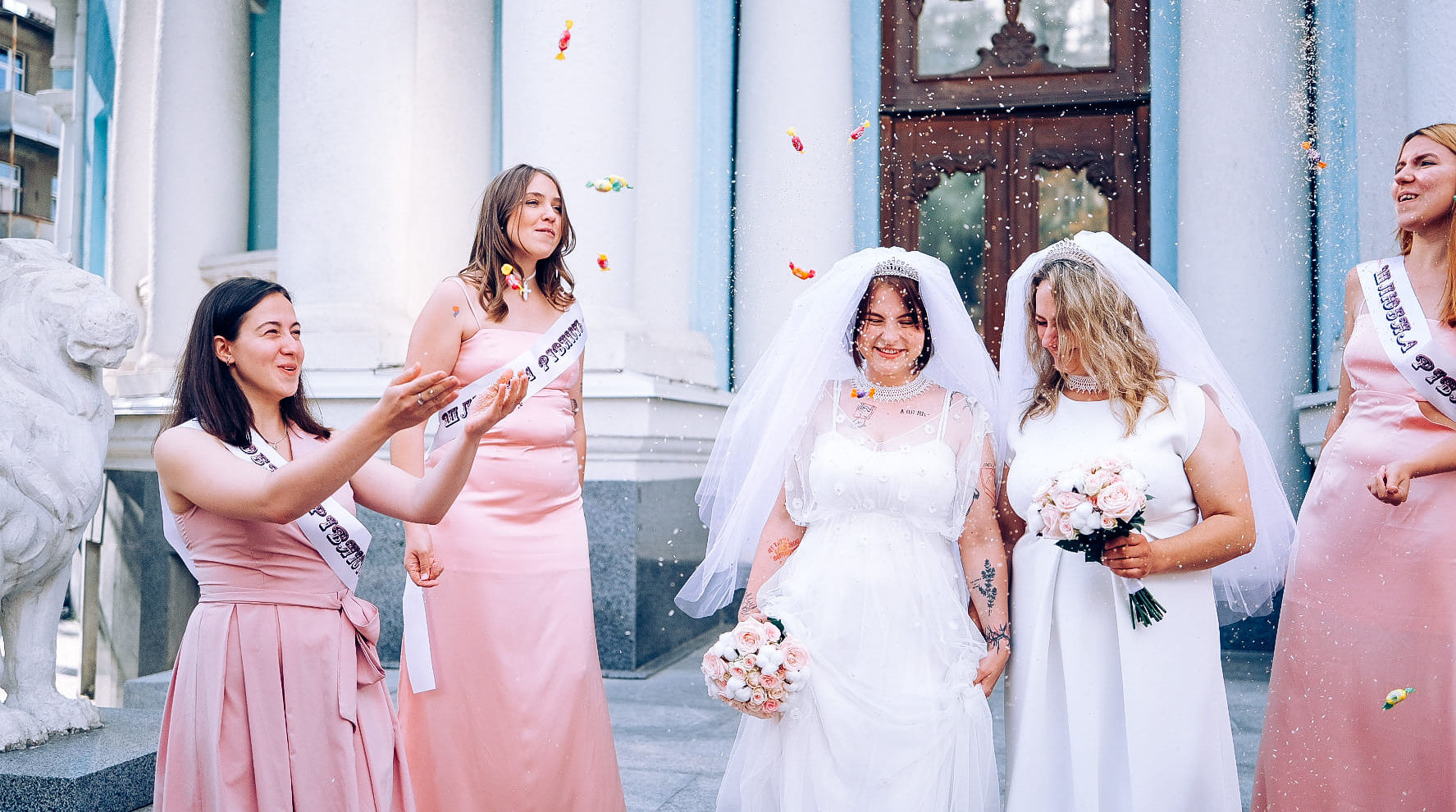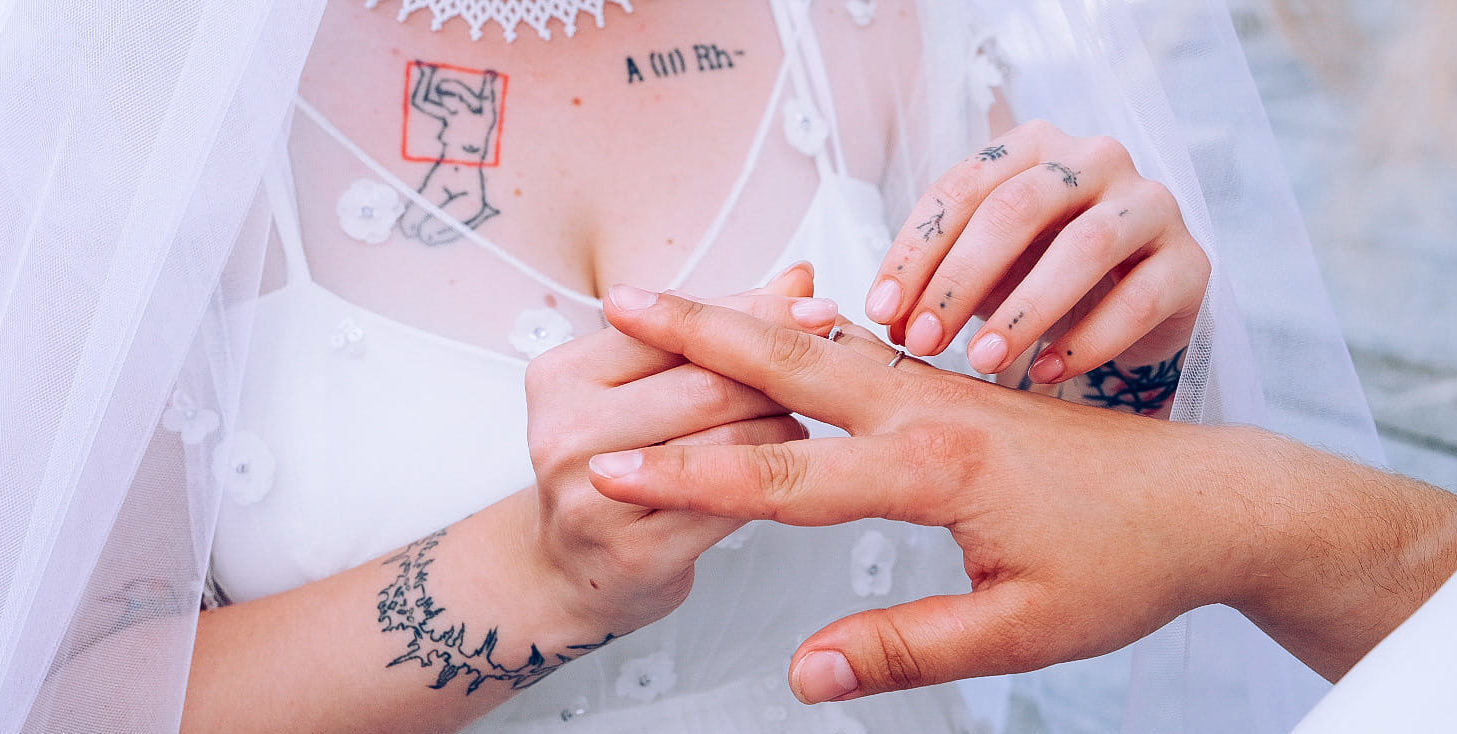LGBTIQ+ couple of a servicewoman and an activist got “married” in Kharkiv
On August 25, Alina Shevchenko, a servicewoman, and Stanislava Petlytsia, an activist, performed a “wedding” ceremony in Kharkiv, a city heavily damaged by Russian missiles. The performance took place near the Central Wedding Palace. The only difference between the celebration and an official wedding was that the women did not register their marriage at the registry office, which is currently legally impossible in Ukraine.
KharkivPride, a local LGBTQI+ initiative that hosts LGBTQI+ events and marches in Kharkiv, announced the event on its social media.
 Photo by KharkivPride
Photo by KharkivPrideStanislava is a local activist in the LGBTQI+ and feminist movements. Alina is a military officer from the Kharkiv region, currently serving as a captain and a brigade staff officer. She has been serving since 2015, following the initial Russia’s attack on Ukraine in 2014. Other soldiers of the Armed Forces of Ukraine know about her sexual orientation and her engagement with her partner.
“Near the Wedding Palace, two brides went through a traditional Ukrainian ritual of being sprinkled with oats, wheat, rice, buckwheat, candy, flowers’ petals, coins, and taking pictures with guests. Afterward, the girls walked around the city, threw bouquets, and hung a lock to symbolize their strong relationship. And in the future, perhaps, an official marriage,” said the event organizers.
 Photo by KharkivPride
Photo by KharkivPrideKharkivPride emphasizes that Alina and Stanislava cannot formalize their relationship, as Ukraine still lacks marriage equality for all couples. A partial solution to the problem could be the adoption of Bill No. 9103 on registered (civil) partnerships that LGBTQI+ activists in Ukraine are advocating for.
This law will not mean marriage equality, however. It will only regulate the relationship between same-sex and different-sex couples in Ukraine.
 Photo by KharkivPride
Photo by KharkivPrideToday, there are still many restrictions for LGBTQI+ partners existing in Ukraine, including for those in the military, such as:
- Inability to make decisions for their partners in life- and health-critical situations, to visit them in intensive care.
- Inability to execute the “last will” to dispose of the partner’s body after death.
- Lack of the right to maintenance and care for a partner unable to work.
- Inability to receive sick leave to care for a sick partner.
- Inability to be a guardian for an incapacitated partner (Article 63 of the Civil Code of Ukraine).
- Inability to take out joint health insurance.
- Inability to jointly own property.
- Inability to inherit property by law and receive related tax benefits, including zero tax on inheritance by will for family members.
- Inability to be buried with a partner in a family grave.
- Inaccessibility of preferential crediting for the family.
- Inability to receive state support after the death of a partner.
- Inability to know if a partner is injured, captured, or dead.
As a reminder, on March 7, a draft law on registered civil partnerships was submitted to the Verkhovna Rada. If adopted, same-sex and different-sex couples can enter into a registered partnership before the law. In particular, during the full-scale war, the importance of this opportunity was emphasized by LGBTQI+ military personnel.
On June 1, the European Court of Human Rights recognized Ukraine’s violation of the rights of a same-sex couple, Andriy Maimulakhin and Andriy Markiv, who cannot marry in the country and face discrimination.
In July, Members of the European Parliament appealed to Volodymyr Zelenskyy, the President of Ukraine, Ruslan Stefanchuk, the Speaker of the Verkhovna Rada, Denys Maslov, the Head of the Committee on Legal Policy, and all members of the committee to ensure the adoption of draft law No. 9103 “On the Institute of Registered Partnerships.”








